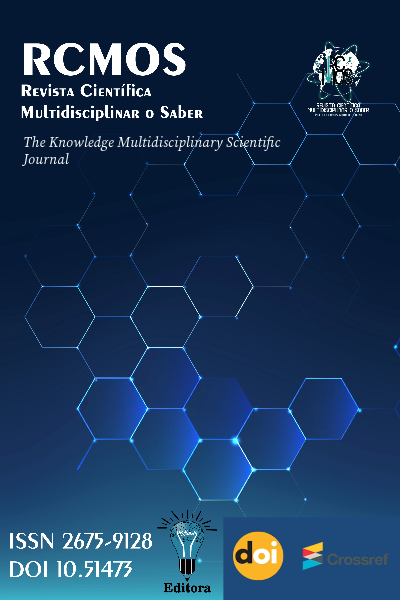Desafios de Letramento: O Papel do Professor de Língua Portuguesa no Ensino de Português como Segunda Língua (L2) para Alunos Surdos
Literacy Challenges: The Role of the Portuguese Language Teacher in Teaching Portuguese as a Second Language (L2) to Deaf Students
DOI:
https://doi.org/10.51473/rcmos.v1i11.2021.1648Palavras-chave:
Ensino de Português; Segunda Língua (L2); Educação de Surdos; Libras; Letramento Bilíngue.Resumo
Este artigo investiga os desafios pedagógicos e metodológicos enfrentados pelo professor de Língua Portuguesa (LP) ao lecionar para alunos surdos, cuja primeira língua (L1) é a Língua Brasileira de Sinais (Libras). Para este público, o português não se configura como língua materna, mas como segunda língua (L2), adquirida primariamente na modalidade escrita e sem o input oralauditivo. A pesquisa parte da problemática de que a formação acadêmica em Letras-Português é, historicamente, voltada ao ensino para falantes-ouvintes nativos, gerando uma lacuna metodológica significativa no contexto da educação bilíngue (Libras/LP) inclusiva. Analisamos como a natureza visual-gestual da L1 (Libras) redefine fundamentalmente a aquisição da L2 (português escrito), exigindo do docente uma reestruturação de sua práxis. O objetivo é discutir as adaptações didáticas necessárias, com foco no ensino de gêneros textuais e na complexa relação entre o professor de LP e o intérprete de Libras, que transcende a mera tradução e adentra a esfera da mediação pedagógica. Conclui-se que a superação desses desafios exige do professor de Letras não apenas a criatividade em atividades didáticas, mas uma profunda reflexão crítica sobre os fundamentos do bilinguismo, do letramento e do seu próprio papel como mediador intercultural.
Downloads
Referências
BAKHTIN, Mikhail (Volochínov). Marxismo e filosofia da linguagem. 7. ed. São Paulo: Hucitec, 1995.
FERNANDES, Eulália. Surdez e bilinguismo: uma pedagogia da diferença. São Paulo: Cortez, 2005.
LACERDA, Cristina B. F. de. O intérprete de Libras no ensino fundamental: refletindo sobre limites e possibilidades. Revista Brasileira de Educação Especial, Marília, v. 12, n. 3, p. 397–414, set./dez. 2006.
MARCUSCHI, Luiz Antônio. Gêneros textuais: definição e funcionalidade. In: DIONÍSIO, Ângela Paiva; MACHADO, Anna Rachel; BEZERRA, Maria Auxiliadora (org.). Gêneros textuais & ensino. Rio de Janeiro: Lucerna, 2002. p. 19–36.
QUADROS, Ronice Müller de. Educação de surdos: a aquisição da linguagem. Porto Alegre: Artmed, 1997.
SKLIAR, Carlos (org.). A surdez: um olhar sobre as diferenças. Porto Alegre: Mediação, 1998.
VYGOTSKY, Lev Semenovich. Pensamento e linguagem. São Paulo: Martins Fontes, 1993.
Downloads
Publicado
Edição
Seção
Categorias
Licença
Copyright (c) 2021 Daniella Lemos Correia (Autor)

Este trabalho está licenciado sob uma licença Creative Commons Attribution 4.0 International License.
Este trabalho está licenciado sob a Licença Creative Commons Atribuição 4.0 Internacional (CC BY 4.0). Isso significa que você tem a liberdade de:
- Compartilhar — copiar e redistribuir o material em qualquer meio ou formato.
- Adaptar — remixar, transformar e construir sobre o material para qualquer propósito, inclusive comercial.
O uso deste material está condicionado à atribuição apropriada ao(s) autor(es) original(is), fornecendo um link para a licença, e indicando se foram feitas alterações. A licença não exige permissão do autor ou da editora, desde que seguidas estas condições.
A logomarca da licença Creative Commons é exibida de maneira permanente no rodapé da revista.
Os direitos autorais do manuscrito podem ser retidos pelos autores sem restrições e solicitados a qualquer momento, mesmo após a publicação na revista.






















